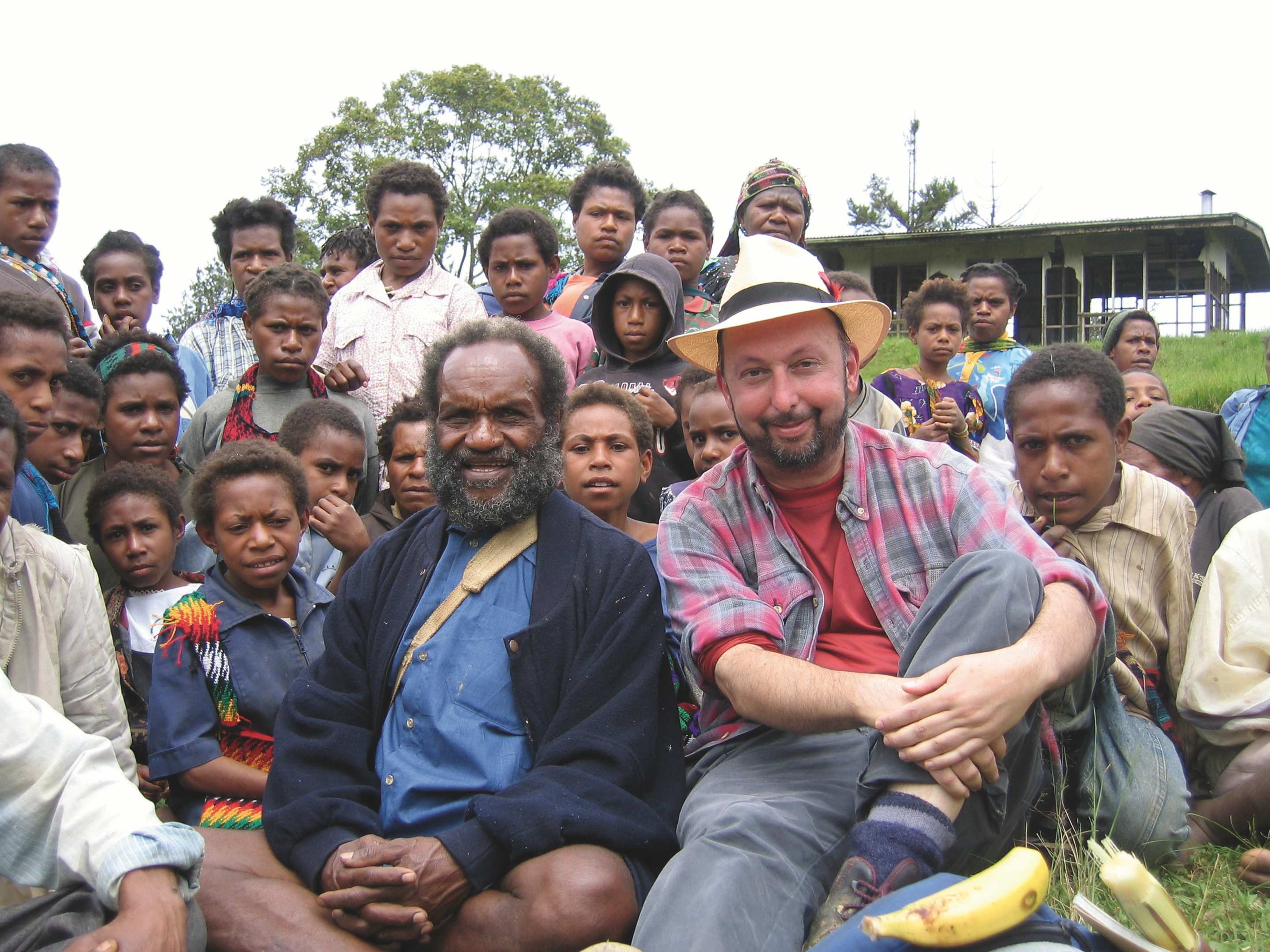Authors recognised at NSW Premier’s History Awards
Two University of Sydney academics, Professor Warwick Anderson and Emeritus Professor Alan Atkinson, have been recognised at this year's NSW Premier's History Awards.

Professor Warwick Anderson (pictured at front), received the 2015 NSW Premier's General History Award for the publication Intolerant Bodies: A Short History of Autoimmunity which he co-authored with Professor Ian Mackay.
Professor of History Warwick Anderson won the General History award for the publication Intolerant Bodies: A Short History of Autoimmunity (Johns Hopkins University Press), which he co-authored with one of the prominent founders of clinical immunology Professor Ian Mackay.
It was the first time an historian had won the award twice after Professor Anderson received the award in 2009 for his book The Collectors of Lost Souls.
Intolerant Bodies is a unique collaboration that narrates the changing scientific understanding of the cause of autoimmunity, and explores the significance of having a disease in which one’s body turns on itself. The book unfolds as a biography of a relatively new concept of pathogenesis, which was accepted only in the 1950s. It focuses on multiple sclerosis, systemic lupus erythematosus (lupus), rheumatoid arthritis, type 1 diabetes mellitus, and autoimmune hepatitis. The publication took the authors more than four years to complete, with the first print run of 2000 copies selling out in two weeks.
Emeritus Professor Alan Atkinson was also recognised at the awards – winning the Australian History Prize for his third, and final, volume in the landmark, award-winning series The Europeans in Australia titled Nation (NewSouth Books).

Emeritus Professor Alan Atkinson won the Australian History Award at this year's NSW Premier's History Awards for his work The Europeans in Australia Volume 3: Nation.
The Europeans in Australia grapples with the Australian historical experience as a whole from the point of view of European settlers. Nation tells the story of Australian Federation and the war. In March this year, The Europeans in Australia won the $100,000 Victorian Prize for Literature.
First presented in 1997 to honour distinguished achievement in history by Australian citizens and permanent residents, the NSW Premier’s History Awards aim to establish values and standards in historical research and publication, and encourage everyone to appreciate and learn from the work of our historians.
Professor Anderson, who in March was inducted into the prestigious Australian Academy of Health and Medical Sciences, said the awards were a means of showing that we value our past, and the ways in which it sheds light on our present condition and prospects.
"As I've said now to two different premiers, the NSW awards are a wonderful model for other states and, indeed, other countries," Professor Anderson said.
"They are an extraordinary investment in historical scholarship, and have proven to be a very effective means of promoting historical work in Australia."
Emeritus Professor Atkinson agreed and said the awards were a real demonstration of intellectual leadership.
"That's really important, especially now, when the national government almost seems to have given that game away. It's really great to be a recognised part in the effort."
Emeritus Professor Atkinson said he would like to thank the University of Sydney for its support throughout the project, which took more than 20 years to complete.
"The University of Sydney is where I've started my work, and it's where this very large part of my writing has come to some sort of conclusion, in spite of wanderings in between.
"The book is a bit idiosyncratic, but I'm sure it bears the mark of the University of Sydney’s intellectual tradition.
"There's a great network of scholarship that I owe a great deal to, and I hope I've done justice to it – writers such as Henry Reynolds, in particular, who give a profound moral dimension to their work. There's also my wife, Catherine Pound – a lot of what I write is about relationships."
Professor Anderson said he also had many people to thank for his work.
"Most of all I would like to thank my co-author. It hasn’t always been easy, but I know I could not have written the book alone.
"The Australian Research Council gave us the funding necessary to conduct extensive research into the history of autoimmunity.
"We also received tremendous help from our research assistants Cecily Hunter, Ed McMahon and James Dunk – the last an outstanding PhD student in History here at Sydney.
"Above all, Ian and I want to thank the patients we've cared for over the years with autoimmune diseases. In Ian's practice, they would number in the thousands, in mine probably 100 or more. Our memories of those patients are inscribed on every page of the book."
You can view the full list of the 2015 NSW Premier's History Awards winners at the State Library website.
Related articles
Sydney excels in national research engagement and impact assessment

Australia Day list celebrates excellence in the University community
Our Voices: Indigeneity and Architecture
Over $1.5 million in ARC funding awarded to Sydney researchers
The Game of Homes: will the housing crisis ever end?
A military-led internet shutdown in Myanmar may be imminent
Evidence shows mental illness isn't a reason to doubt women survivors
Dorothy Hoddinott awarded honorary doctorate
Everyone has a story to share
At our Living Library, people will be the books and share their experiences as part of the University's commitment to build a culture of inclusion and diversity on campus.